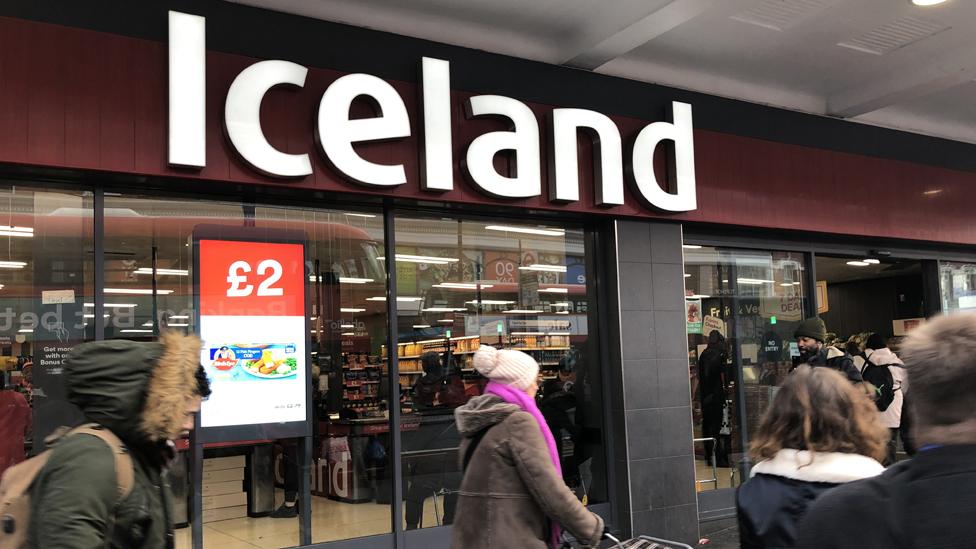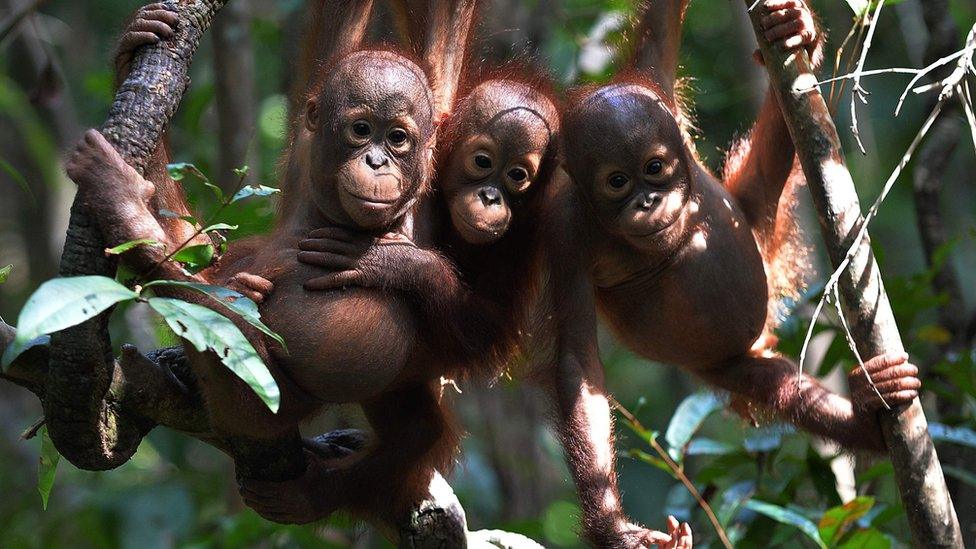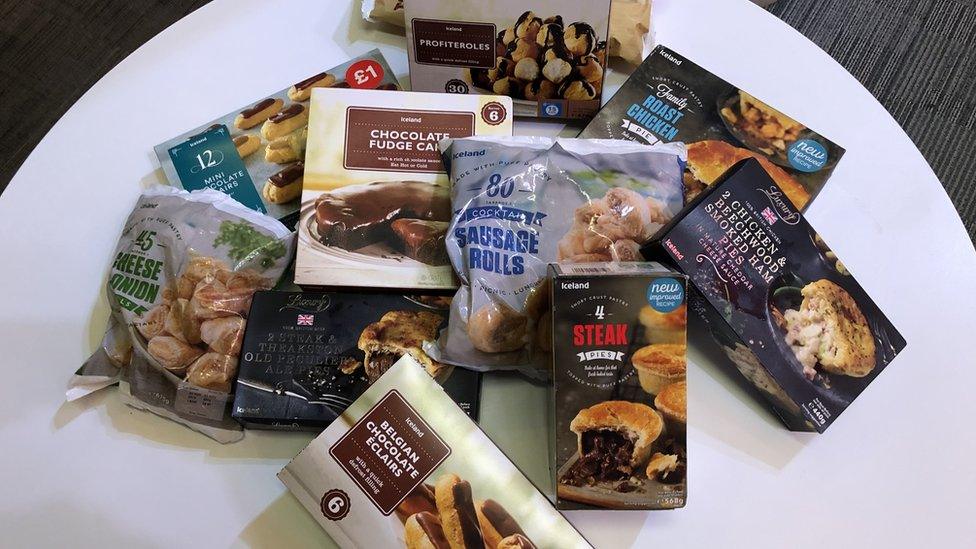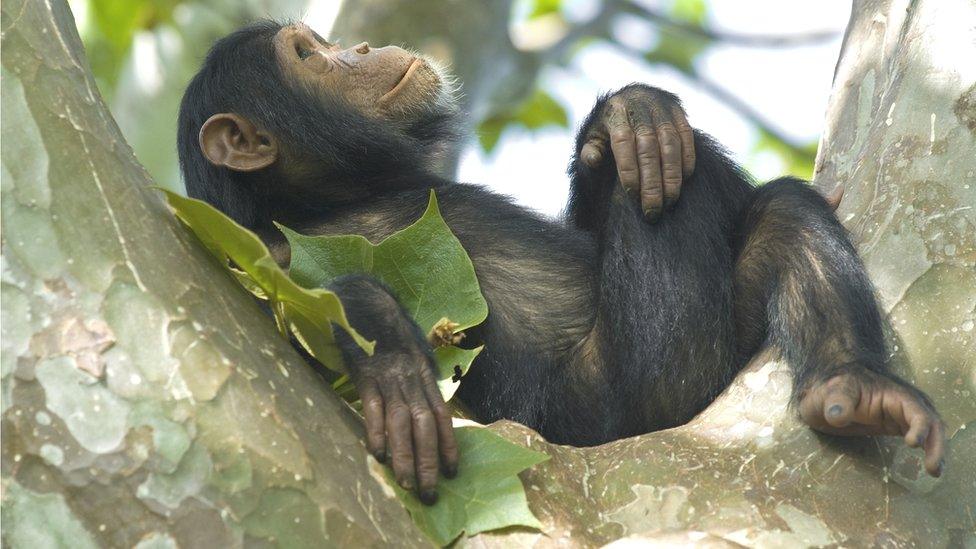Iceland removed own label from 17 products rather than palm oil
- Published

Iceland supermarket has told the BBC that - in a bid to meet a pledge to remove palm oil from all its own-brand products - it removed its branding from some items, rather than the ingredient.
The retailer vowed to remove palm oil from "100%" of its own products by the end of 2018, saying demand for the oil was devastating rainforests in Asia.
Unable to meet the deadline, it then dropped its name from 17 palm products.
Iceland blamed technical issues, adding it did not want to "mislead consumers".
The retailer said it was pushing its manufacturers "hard" to remove palm oil from the items that had previously been own-brand, but now had no branding.
It added that it "was not possible to remove palm oil at a manufacturing level in these products by 31 December 2018", adding that it had been "transparent".
Iceland said it had "not given up" on the nine frozen and eight chilled lines that had not yet been reformulated, which will have their branding reinstated by April.


Consumer group Ethical Consumer said: "In the cases where they have failed to reformulate products, simply re-labelling them is counter-productive."
It added it was important for companies "to be transparent about the ethical problems they are facing".
On Wednesday, the BBC revealed Iceland was still selling own-label palm oil products, despite promising to stop doing so by the end of 2018.
Iceland blamed a "website issue" after the BBC was able to find 28 own-brand products for sale online containing palm oil.
Many of the products online were later removed by the retailer, but own-label products containing palm oil were still available to buy in stores that day.
Iceland insisted there were no own-label fresh items available that still contained palm oil.

What did Iceland promise?
"The Iceland no palm oil pledge is that by the end of 2018, 100% of the supermarket's own label food lines will contain no palm oil, reducing demand for palm oil by more than 500 tonnes per year."

Despite continuing to sell own-label products containing palm oil, Iceland has spent weeks telling its customers on social media that none of its products contains it, while its website states the company is "simply saying no to palm oil".
Even before the end of 2018, Iceland tweeted one customer to say: "There's no palm oil in our own-brand products."
When the BBC pointed out that many of its own brand products still contained palm oil, Iceland said it was old stock and it now expected there to be no more products available to buy with palm oil "within the next few weeks".
Iceland became the first UK supermarket to announce the removal of palm oil from its products when it made the pledge last year.

Why is palm oil controversial?

Palm oil cultivation can destroy habitats for orangutans
Palm oil production is said to have been responsible for about 8% of the world's deforestation between 1990 and 2008
Burning large areas of forests to clear areas where oil palms can be grown has also been blamed for high levels of air pollution in South East Asia
Palm oil is used in almost half the products stocked by UK supermarkets and can be found in everything from shampoos to biscuits, as well as biofuels
Some experts say eating palm oil is unhealthy because it is high in saturated fat
EU labelling laws were changed in 2014 so products must now state specifically if they contain palm oil

- Published23 January 2019

- Published10 April 2018

- Published14 August 2018
